Discover Talkin‘ Politics & Religion Without Killin‘ Each Other
Talkin‘ Politics & Religion Without Killin‘ Each Other

Talkin‘ Politics & Religion Without Killin‘ Each Other
Author: Scan Media, LLC
Subscribed: 20,251Played: 171,041Subscribe
Share
© Copyright 2020 All rights reserved. 255335
Description
Politics and Religion. We’re not supposed to talk about that, right? Wrong! We only say that nowadays because the loudest, most extreme voices have taken over the whole conversation. Well, we‘re taking some of that space back! If you’re dying for some dialogue instead of all the yelling; if you know it’s okay to have differences without having to hate each other; if you believe politics and religion are too important to let ”the screamers” drown out the rest of us and would love some engaging, provocative and fun conversations about this stuff, then ”Talkin‘ Politics & Religion Without Killin‘ Each Other” is for you!
359 Episodes
Reverse
“The North Star is the truth. Tell it. And if you can’t, explain why.” — Col. David Lapan (Ret.)
We had the distinct honor of sitting down with Colonel David Lapan, retired Marine and former spokesperson for the Department of Homeland Security, Secretaries of Defense, and the Chairman of the Joint Chiefs of Staff. In a wide-ranging, timely conversation, Colonel Lapan unpacks the critical balance between national security and democratic accountability, the dangers of politicizing the military, and how press freedom strengthens—not weakens—our institutions.
We delve into his 30+ years of military service, his pivotal role in launching the media embed program during the Iraq War, and why he left DHS during the Trump administration. Lapan also shares pointed thoughts on recent efforts to restrict Pentagon press access and the implications of political theater in national defense.
📣 Calls to Action:
✅ TELL A FRIEND ABOUT TP&R!!! Bring more folks into the conversation.
✅ Subscribe to Talkin' Politics & Religion Without Killin' Each Other on your favorite podcast platform.
✅ Leave a review on Apple Podcasts, Spotify, or wherever you listen: ratethispodcast.com/goodfaithpolitics
✅ Check out our Substack: coreysnathan.substack.com
✅ Watch the full conversation and subscribe on YouTube: youtube.com/@politicsandreligion
⏱️ Timestamps & Key Topics:
[00:00:00] Intro to Colonel David Lapan and the state of hockey 🏒
[00:04:00] From college dropout to enlisted Marine to colonel
[00:07:00] Journalism roots and shift into public affairs
[00:09:00] Inside the Pentagon pre- and post-9/11
[00:12:00] Designing the media embed program for Iraq
[00:16:00] Why press transparency during war matters
[00:23:00] Serving as press secretary under Secretary John Kelly at DHS
[00:27:00] Why Lapan resigned: integrity vs. political pressure
[00:34:00] What “tell the truth” means in government service
[00:38:00] Recent restrictions on Pentagon press corps
[00:47:00] Defending the First Amendment in uniform
[00:56:00] Critiquing the theater of recent military briefings
[01:03:00] The risks of poorly trained federal agents
[01:06:00] How polarization affects veterans and service members
[01:09:00] Final thoughts: can we still talk across differences?
🧠 Key Takeaways:
Truth Above All: “The North Star is the truth” is not just a slogan—it's a standard for ethical public service.
Press Isn’t the Enemy: Limiting access and controlling narratives damages democracy and military credibility.
Political Theater Has Real Costs: Grandstanding undermines military readiness and public trust.
Good People, Hard Choices: Many principled professionals served during the Trump administration—and some had to walk away.
Courage Comes in Many Forms: Sometimes that means resisting pressure to spin or mislead.
💬 Notable Quotes:
“Being a Marine doesn’t mean shutting up—it means standing up for what’s right.” — Col. David Lapan
“We’ve defended the Constitution our whole lives. Now we’re watching it be trampled from within.” — Col. David Lapan
“Reporters aren’t the problem. Lack of transparency is.” — Col. David Lapan
“You don't protect the country by hiding the truth from its people.” — Col. David Lapan
🔗 Connect on Social Media:
Corey is @coreysnathan on...
Substack
Bluesky
LinkedIn
Instagram
Threads
Facebook
TikTok
🎙️ Our Sponsors:
Meza Wealth Management: www.mezawealth.com
The Village Square: villagesquare.us
And we are proud to be members of The Democracy Group: democracygroup.org
Thanks for tuning in! Now go talk politics and religion—with gentleness and respect. 🎙️✨
Surviving Triangulation in a Polarized World
It's time to reckon with one of the toughest questions in our current public discourse: “How can you think that?” Through stories from his personal and professional life, host Corey Nathan unpacks the emotionally draining phenomenon of triangulation—when we’re caught in the middle of opposing viewpoints—and explores how we can respond with curiosity and conviction without losing our sanity.
From navigating impossible conversations to confronting conspiracy theories (like the FBI staging Jan. 6?!), Corey challenges listeners to stay in tough conversations while guarding their own well-being. Drawing inspiration from a powerful essay by Christopher Armitage on The Existentialist Republic, this episode dives into the psychology of belief, the cost of defection from "reality bubbles," and the quiet strength of one-degree influence.
Whether you're a peacemaker, bridge-builder, or just trying to keep your sanity in polarized times, this one’s for you. 🙏
📣 Calls to Action
✅ TELL A FRIEND ABOUT TP&R!!! Bring more folks into the conversation.
✅ Subscribe to Talkin' Politics & Religion Without Killin' Each Other on your favorite podcast platform.
✅ Leave a review on Apple Podcasts, Spotify, or wherever you listen: ratethispodcast.com/goodfaithpolitics
✅ Check out our Substack: coreysnathan.substack.com
✅ Watch the full conversation and subscribe on YouTube: youtube.com/@politicsandreligion
⏱️ Timestamps & Topics
[00:00:00] 🎧 Intro: What drives Corey bananas? Triangulation!
[00:01:30] What triangulation really looks like in everyday life
[00:03:00] Caught in the crossfire: The emotional toll of being “the middle guy”
[00:05:00] 🤯 “How can you think that?” — when conspiracy logic collapses
[00:08:00] Discovering The Existentialist Republic and its insights
[00:10:00] Armitage on why people cling to destructive systems
[00:12:00] Humility, bubbles, and the danger of total delegitimization
[00:13:30] 💬 “Not much. But not nothing.” — The power of one degree
[00:15:00] Living in the age of triangulation without losing your soul
🧠 Key Takeaways
Triangulation Hurts: Being the middle person between two polarized groups can feel like being dragged into an emotional war.
The Power of Presence: Staying in relationship—even with those we disagree with—gives us the chance to be heard and to listen.
One-Degree Influence Matters: A single thoughtful question can shift someone’s perspective more than a thousand arguments.
Belief Systems Are Sticky: It’s costly—psychologically and socially—for people to change their minds, especially within closed systems.
Stay Gentle, Stay Grounded: Keep showing up with love, humility, and curiosity. That’s how change begins.
📖 Bonus Reading
The Existentialist Republic: cmarmitage.substack.com
🔗 Connect on Social Media
Corey is @coreysnathan on...
Bluesky
LinkedIn
Instagram
Threads
Facebook
Substack
TikTok
Our Sponsors
Meza Wealth Management: www.mezawealth.com
The Village Square: villagesquare.us
And we are proud members of The Democracy Group: democracygroup.org
Thanks for tuning in! Now go talk politics and religion—with gentleness and respect. 🎙️✨
"If we lived in the poorest, most dangerous neighborhoods, we’d understand better how to love and serve." — Dr. Kurt Ver Beek
It was great to sit down with Dr. Kurt Ver Beek, co-founder of the Association for a More Just Society (ASJ), who has lived and worked in Honduras for nearly four decades. From battling systemic corruption to reducing the homicide rate in one of the world’s most dangerous communities, Kurt shares a riveting account of faith in action and public justice rooted in Christian conviction.
We explore the difference between traditional missionary work and systemic transformation, how theological frameworks can drive bold action, and why brave Christianity is needed now more than ever.
📣 Calls to Action:
✅ TELL A FRIEND ABOUT TP&R!!! Bring more folks into the conversation.
✅ Subscribe to Talkin' Politics & Religion Without Killin' Each Other on your favorite podcast platform.
✅ Leave a review on Apple Podcasts, Spotify, or wherever you listen: ratethispodcast.com/goodfaithpolitics
✅ Check out our Substack: coreysnathan.substack.com
✅ Watch the full conversation and subscribe on YouTube: youtube.com/@politicsandreligion
⏱️ Timestamps & Key Topics:
[00:00:00] Introduction to Dr. Kurt Ver Beek and ASJ
[00:01:00] Childhood influences: Christian values and political curiosity
[00:04:00] Faith formation and a growing “allergy” to injustice
[00:08:00] Moving beyond charity to systemic change
[00:14:00] What it really means to "help the poor"
[00:23:00] Corruption, extortion, and the story of a neighborhood pillow maker
[00:29:00] How three hired staff helped significantly reduce local homicides
[00:34:00] Raising funds for justice: why it’s not as hard as people think
[00:40:00] Theology of safety vs. theology of love and proximity
[00:47:00] Political influence without being politically compromised
[00:53:00] From 113 to 218 school days: measurable education reform
[01:00:00] What we can do: curiosity, courage, and conversation
[01:02:00] Practicing politics and faith with gentleness and respect
🧠 Key Takeaways:
Systemic Change Is Possible: Justice doesn't always take decades. Hiring an ex-cop and a lawyer helped reduce homicides dramatically.
Faith Isn’t Just About Sundays: Living out the Gospel means transforming systems that harm the vulnerable.
Corruption and Violence Are Addressable: Real change can happen when Christians take bold, strategic action.
Don’t Underestimate Funders: Donors care about results — and systemic justice produces them.
Bravery Is Biblical: The call to be brave Christians isn’t optional — it’s essential.
💬 Notable Quotes:
“Being a Christian doesn't have to look like what many young people see today.” — Kurt Ver Beek
“The lie is that systemic change is too hard — it’s not. It just takes brave Christians.” — Kurt Ver Beek
“No place in the Bible does it say to be safe. It says to love your neighbor.” — Kurt Ver Beek
“Be curious. Listen better. People aren't as crazy as you think.” — Kurt Ver Beek
📚 Mentioned Books and Resources:
📖 Call for Justice by Kurt Ver Beek & Nicholas Wolterstorff
📘 Bear Witness by Ross Halpern – (Kurt says it’s “90% on the money!”)
🌐 Learn more about ASJ: asj-us.org
🔗 Connect on Social Media:
Corey is @coreysnathan on...
Bluesky
LinkedIn
Instagram
Threads
Facebook
Substack
TikTok
Our Sponsors:
Meza Wealth Management: www.mezawealth.com
The Village Square: villagesquare.us
And we are proud members of The Democracy Group: democracygroup.org
Thanks for tuning in! Now go talk politics and religion—with gentleness and respect. ✌️🙏
A candid reflection on staying grounded while engaging in contentious conversations—and when to take a step back.
✨ Episode Summary
In this heartfelt solo talk, host Corey Nathan goes back to the fundamentals of Talkin’ Politics & Religion Without Killin’ Each Other. Reflecting on recent emotionally charged interactions—some painfully personal—Corey revisits five foundational principles that guide his conversations and this podcast’s mission.
He opens up about the emotional toll of receiving attacks from opposing sides of the political and religious spectrum and how even with years of practice, the work of engaging respectfully remains challenging and ongoing.
Here are the five essentials Corey leans into when the temperature rises:
👉 Practice what you preach
👉 Contest or conversation? Know the difference.
👉 Articulate others’ views well.
👉 Sometimes, take it offline.
👉 Know when to walk away.
This isn’t just theory—it’s a personal reckoning, with honesty, humility, and yes, some humor too.
📣 Calls to Action:
✅ TELL A FRIEND ABOUT TP&R!!! Bring more folks into the conversation.
✅ Subscribe to Talkin' Politics & Religion Without Killin' Each Other on your favorite podcast platform.
✅ Leave a review on Apple Podcasts, Spotify, or wherever you listen: ratethispodcast.com/goodfaithpolitics
✅ Check out our Substack: coreysnathan.substack.com
✅ Watch the full conversation and subscribe on YouTube: youtube.com/@politicsandreligion
⏱️ Timestamps & Topics
[00:00:00] 🎧 Intro: Hockey talk, Rangers vs. Kings, and a shout-out to The Democracy Group
[00:02:00] Recent conversations that challenged Corey’s peace and patience
[00:03:00] On being attacked by voices from both extremes of the Israel-Gaza conflict
[00:06:00] Recognizing how giving space to others can draw heat—sometimes from all sides
[00:07:30] The emotional cost of staying in these conversations
[00:08:00] Going “Back to Basics”: Five principles to guide tough discussions
[00:09:00] #1: Practice what you preach—even when it’s hard
[00:10:00] #2: Contest or conversation? Choose wisely.
[00:12:00] #3: Articulate others’ views honestly, even when you disagree
[00:14:00] #4: Sometimes take it offline to preserve dignity and connection
[00:17:00] #5: Know when to walk away—because not everyone deserves your time
[00:20:00] Closing: Still learning, still growing, still hoping for peace
🧠 Key Takeaways
See Other's Humanity: Engage with people as individuals, not as representatives of an ideology.
Not Every Fight is Worth Fighting: Sometimes, disengagement is a form of self-care and wisdom.
Curiosity Builds Bridges: Ask real questions. Seek understanding, not just rebuttals.
There’s Power in Saying “No More”: Knowing your limits is an act of strength, not weakness.
The Work is Ongoing: This isn’t about perfection—it’s about commitment to grow and do better.
🔗 Connect on Social Media:
Corey is @coreysnathan on...
Bluesky
LinkedIn
Instagram
Threads
Facebook
Substack
TikTok
Our Sponsors:
Meza Wealth Management: www.mezawealth.com
The Village Square: villagesquare.us
And we are proud members of The Democracy Group: democracygroup.org
Thanks for tuning in! Now go talk politics and religion—with gentleness and respect. 🎙️✨
Exploring how Christian conviction and civic love — inspired by the faith of Willie Faye and Mahalia Jackson’s generation — can transcend political tribalism.
🔥 Episode Summary
Grateful to welcome Justin Giboney, an ordained minister, attorney, and co-founder of the AND Campaign. Justin shares his faith journey, the genesis of the AND Campaign, and his new book, Don't Let Nobody Turn You Around: How the Black Church’s Public Witness Leads Us Out of the Culture War. Together, we explore how faith can ground political engagement, challenge tribalism, and offer a better way forward rooted in compassion, conviction, and moral imagination.
📣 Calls to Action:
✅ TELL A FRIEND ABOUT TP&R!!! Bring more folks into the conversation.
✅ Subscribe to Talkin' Politics & Religion Without Killin' Each Other on your favorite podcast platform.
✅ Leave a review on Apple Podcasts, Spotify, or wherever you listen: ratethispodcast.com/goodfaithpolitics
✅ Check out our Substack: coreysnathan.substack.com
✅ Watch the full conversation and subscribe on YouTube: youtube.com/@politicsandreligion
⏱️ Timestamps & Key Topics
[00:00:00] Intro to the show and our guest Justin E. Giboney
[00:01:00] Justin’s background: faith, family, football, and public life
[00:03:00] Raising three boys in Georgia and coaching youth football 🏈
[00:04:00] Justin’s college years at Vanderbilt and struggles with faith
[00:06:00] Returning to faith and the influence of family, especially Willie Faye
[00:08:00] Learning from personal crossroads: sports injury, law, and political work
[00:10:00] Beginning the AND Campaign: from political activism to movement leadership
[00:13:00] The legacy of the Civil Rights era and moral imagination
[00:16:00] Political tribalism, Christian engagement, and party alignment
[00:22:00] Core principles of the AND Campaign and engaging as a faithful Christian
[00:25:00] Civic pluralism: persuading without imposing faith
[00:27:00] Importance of relationships over culture war ideology
[00:34:00] Honest critiques of progressivism and conservatism
[00:43:00] Addiction to outrage and the loss of moral clarity
[00:51:00] Opposition-centered engagement and political virtue signaling
[00:56:00] Final thoughts on leadership, truth, and compassion
🧠 Key Takeaways
Faith Requires Courage: Being a faithful Christian in the public square demands moral clarity, humility, and the ability to stand apart from political allegiances.
Reject Political Tribalism: Christians must transcend party lines and speak truth to power, even to their own political "side."
Moral Imagination Is Essential: The ability to imagine what ought to be—especially in times of conflict—is the key to compassionate and just civic engagement.
Civil Rights Generation as a Model: Justin draws inspiration from the faith, resilience, and clarity of leaders like his grandmother Willie Faye and Mahalia Jackson.
Opposition-Centered Engagement is Toxic: Defining oneself solely by opposition to the "other side" leads to shallow, reactive politics.
💬 Notable Quotes
“Discipleship isn’t easy—and loving your neighbor especially when it’s hard, is where the Gospel really comes alive.”
— Justin Giboney
“If the Civil Rights generation could love their enemies with hoses and bombs aimed at them, we can love ours with tweets and outrage.”
— Justin Giboney
“True leadership today means turning around and telling your side what it needs to do better.”
— Justin Giboney
📚 Featured Book
Don't Let Nobody Turn You Around: How the Black Church’s Public Witness Leads Us Out of the Culture War - www.ivpress.com/don-t-let-nobody-turn-you-around
🗓️ Coming November 4, 2025
🔗 Connect with Justin Giboney
📸 Instagram: @justinegiboney
🐦 X (Twitter): @justinegiboney
🎧 Podcast: Church Politics
🌐 AND Campaign: andcampaign.org
🔗 Connect on Social Media:
Corey is @coreysnathan on...
Substack
Bluesky
LinkedIn
Instagram
Threads
Facebook
TikTok
Our Sponsors:
Meza Wealth Management: www.mezawealth.com
The Village Square: villagesquare.us
And we are proud members of The Democracy Group: democracygroup.org
Thanks for tuning in! Now go talk politics and religion—with gentleness and respect. 🎙️✨
A raw look at which relationships and conversations are worth our time—and when to just say f* it.
✨ Episode Summary
In this candid, off-the-cuff talk, Corey wrestles with a series of deeply personal and philosophical questions that lie at the heart of this progam’s mission:
👉 Which conversations are worth pursuing?
👉 Which relationships are worth nurturing?
👉 And at what point should we walk away for the sake of our own peace—and the greater good?
From fielding scriptural "shard attacks" for using colorful language to being targeted with assumptions rooted in ignorance and bigotry, Corey lays bare some inner conflicts with vulnerability, humor, and, yes, a few well-placed f-bombs. This isn't just an airing of grievances—it's an invitation to reflect on how we can all be fountains, not drains in a world sorely in need of healing.
📣 Calls to Action:
✅ TELL A FRIEND ABOUT TP&R!!! Bring more folks into the conversation.
✅ Subscribe to Talkin' Politics & Religion Without Killin' Each Other on your favorite podcast platform.
✅ Leave a review on Apple Podcasts, Spotify, or wherever you listen: ratethispodcast.com/goodfaithpolitics
✅ Check out our Substack: coreysnathan.substack.com
✅ Watch the full conversation and subscribe on YouTube: youtube.com/@politicsandreligion
⏱️ Timestamps & Topics
[00:00:00] Intro, shout-out to Substack community & podcast housekeeping
[00:02:00] ⚾ Quick tangent: Brooklyn Cyclones, Mets fandom, and hope for the future
[00:03:00] Opening big questions: What convos and relationships are worth it?
[00:04:00] Story #1: Being called out for cursing—and Corey's take on "Christian language policing"
[00:07:00] Righteous anger, proof-texting, and weaponizing Scripture
[00:09:00] Story #2: Encountering prejudice disguised as critique
[00:12:00] Recounting meaningful dialogue with Lisa Sharon Harper as a contrast
[00:14:00] Deep pain, generational trauma, and the erasure of Jewish identity
[00:17:00] Hatefulness vs. ignorance—where do we draw the line?
[00:18:30] Who gets to be in the “cool kids club” of social justice discourse?
[00:19:30] Questions to the audience: Are we fountains or drains in this world?
[00:20:00] Final thoughts: Owning the heat, seeking feedback, and doing better
🧠 Key Takeaways
Language vs. Intent: A well-placed curse word shouldn’t overshadow a meaningful, vulnerable message.
Weaponizing Scripture: Proof-texting undermines the depth and context of sacred texts—and can be deeply harmful.
Bigotry in Disguise: Assumptions based on skin tone or identity reduce complex histories and humanity to dangerous stereotypes.
Be a Fountain, Not a Drain: Ask yourself—are your words and actions contributing to tikkun olam (repairing the world), or draining its soul?
Not Every Battle is Yours: Sometimes walking away is an act of wisdom and self-preservation, not cowardice.
📖 Bonus Reading
Proverbs 31 vs Proverbs 27: Woman of valor or dripping faucet? Decide for yourself.
George Washington’s Farewell Address: Surprisingly prophetic in its warnings about factionalism.
Tikkun Olam: Explore the Jewish concept of repairing the world and how it applies to today’s discourse.
🔗 Connect on Social Media:
Corey is @coreysnathan on...
Bluesky
LinkedIn
Instagram
Threads
Facebook
Substack
TikTok
Our Sponsors:
Meza Wealth Management: www.mezawealth.com
The Village Square: villagesquare.us
And we are proud members of The Democracy Group: democracygroup.org
Thanks for tuning in! Now go talk politics and religion—with gentleness and respect. 🎙️✨
Why defending viewpoint diversity might be the most radical—and necessary—act in higher education today.
🎧 Episode Summary
What a treat to welcome two leading voices in the fight for viewpoint diversity and constructive civic dialogue: Jonathan Rauch, senior fellow at Brookings and author of The Constitution of Knowledge, and Liz Joyner, founder of The Village Square.
As board members of Heterodox Academy (HxA), Jon and Liz unpack the organization’s mission to restore open inquiry and truth-seeking within higher education—and how these values are essential to preserving our democracy at large. With personal stories, sharp analysis, and even a few laughs, they explore what we each can do to counter the ecosystem of illiberalism and strengthen the social fabric.
📣 Calls to Action:
✅ TELL A FRIEND ABOUT TP&R!!! Bring more folks into the conversation.
✅ Subscribe to Talkin' Politics & Religion Without Killin' Each Other on your favorite podcast platform.
✅ Leave a review on Apple Podcasts, Spotify, or wherever you listen: ratethispodcast.com/goodfaithpolitics
✅ Check out our Substack: coreysnathan.substack.com
✅ Watch the full conversation and subscribe on YouTube: youtube.com/@politicsandreligion
🕰️ Timestamps & Topics
[00:00:00] Intro: What’s broken in our democracy and how we fix it
[00:01:00] Meet the guests: Jonathan Rauch and Liz Joyner
[00:03:00] What is Heterodox Academy and how did it begin?
[00:06:00] Rauch on early signs of "wokeness" and Kindly Inquisitors
[00:08:00] Joyner’s grassroots experience with ideological diversity at Village Square
[00:10:00] The "ecosystem of illiberalism" and why liberal principles matter
[00:15:00] Can HxA help defend against external political coercion?
[00:20:00] Are we headed toward institutional collapse or renewal?
[00:25:00] Speech vs. coercion: The cultural and legal frontlines
[00:33:00] Personal costs of speaking out: Corey’s Chappelle story
[00:36:00] What should institutions do to defend free speech?
[00:39:00] On the Trump administration’s authoritarian tactics
[00:45:00] Fears for 2026 and 2028 elections
[00:48:00] Signs of progress: Academic reform, FIRE, and HxA programs
[00:54:00] How to break the cycle of intolerance
[00:56:00] How do we actually talk to people who disagree?
[01:01:00] "Love people back into communion with liberalism"
[01:08:00] The local vs. national divide—learning from LA’s fires & ICE raids
[01:14:00] Final reflections: Reclaiming truth, curiosity, and compassion
💡 Key Takeaways
Liberalism needs defenders: Jon reminds us that truth-seeking demands criticism—and that “criticism hurts, but it’s necessary.”
Civic spaces matter: Liz underscores the importance of local, respectful dialogue and building trust before crisis hits.
The ecosystem is the problem: Illiberalism isn't coming from just one side; it’s a reactive spiral we must all help disrupt.
Institutions must hold firm: It's not disagreement that's dangerous—it's coercion by powerful entities that silence dissent.
Each of us has a role: From book clubs to coffee shops, we can all “love people back into communion with liberalism.”
🧠 Notable Quotes
🗣️ “We are better together. A diverse people can self-govern—if we protect the institutions that help us do so.” – Liz Joyner
🧠 “If I’m talking, I’m not learning. If I’m listening, I probably am.” – Jonathan Rauch
❤️ “What I’d like you to talk about today is how we can love people back into communion with liberalism.” – Quoting Jonathan V. Last (via Liz Joyner)
🔗 Resources & Mentions
Heterodox Academy - heterodoxacademy.org
The Constitution of Knowledge - www.brookings.edu/books/the-constitution-of-knowledge
Village Square - villagesquare.us
Kindly Inquisitors - press.uchicago.edu/ucp/books/book/chicago/K/bo18140749.html
A University the World Has Never Seen- heterodoxacademy.substack.com/p/a-university-the-world-has-never
Jonathan Rauch- jonathanrauch.typepad.com
🔗 Connect on Social Media:
Corey is @coreysnathan on...
Bluesky
LinkedIn
Instagram
Threads
Facebook
Substack
TikTok
Our Sponsors:
Meza Wealth Management: www.mezawealth.com
The Village Square: villagesquare.us
And we are proud members of The Democracy Group: democracygroup.org
Thanks for tuning in! Now go talk politics and religion—with gentleness and respect. 🎙️✨
In times of national tragedy, can we resist the urge to turn our grief into political ammo? Sadly, our current leaders can't seem to find their better angels. So who's gonna do the right thing?
🧭 Episode Summary
Fair warning: Your trusty friend and host is a little hot under the collar on this one. We're addressing the aftermath of Charlie Kirk’s assassination and the toxic political blame game that followed. Corey dismantles the knee-jerk scapegoating by political leaders—particularly from the Trump administration—and calls for a return to civility, empathy, and individual responsibility.
Drawing inspiration from great American leaders such as Lincoln, Douglass, MLK, Reagan, and Jack Kemp, Corey urges listeners to rise above the “us vs. them” narrative and engage in meaningful conversations across ideological divides. This isn’t just a podcast—it’s a wake-up call for moral courage and collective healing.
📣 Calls to Action:
✅ TELL A FRIEND ABOUT TP&R!!! Bring more folks into the conversation.
✅ Subscribe to Talkin' Politics & Religion Without Killin' Each Other on your favorite podcast platform.
✅ Leave a review on Apple Podcasts, Spotify, or wherever you listen: ratethispodcast.com/goodfaithpolitics
✅ Check out our substack: coreysnathan.substack.com
✅ Watch the full conversation and subscribe on YouTube: youtube.com/@politicsandreligion
🕰️ Timestamps & Highlights
Time
Topic
00:00
🎙️ Introduction & what's bugging Corey today
01:30
⚖️ Criticism of current leadership’s divisive rhetoric post-tragedy
03:00
🔥 “They didn’t do it.” – the central thesis
05:30
🧠 Why scapegoating is dangerous and lazy
06:00
🗣️ Quotes from historical leaders on unity
08:00
🙌 Remembering real conservatism and integrity in leadership
10:00
💰 A quick word about sponsor: Meza Wealth Management
11:00
🧍♂️ One-on-one conversations > tribal politics
13:00
🧘 Rejecting polarization and choosing relationship over rage
15:00
❓ How to ask genuine questions without interrogating
17:00
✡️ Tikkun Olam – the Jewish concept of healing the world
18:00
🧭 Final thoughts: Courage, not cowardice, builds bridges
19:00
🙏 Outro: Feedback, Substack, YouTube, and a call to respectful conversation
💡 Key Takeaways
“They didn’t do it”: One person is responsible for a crime—not an entire political party or ideology.
Scapegoating is intellectually and morally lazy; real leadership seeks unity, not division.
History holds better role models: From Lincoln to Reagan, great leaders have called for reconciliation, not retaliation.
Genuine conversations with those who think differently are the antidote to political polarization.
Tikkun Olam: We each have a responsibility to repair the world—one action, one conversation at a time.
📢 Notable Quotes
🗨️ “Scapegoating is cowardice. It’s morally and intellectually lazy.”
🗨️ “They didn’t do it. An individual did.”
🗨️ “If grief morphs into blaming anyone who voted differently than you, that’s not mourning—that’s scapegoating.”
🗨️ “We are not enemies, but friends. We must not be enemies.” – Abraham Lincoln
🗨️ “Democracy without respect for the dignity of each individual is not democracy at all.” – Jack Kemp
🔗 Connect on Social Media:
Corey is @coreysnathan on...
Bluesky
LinkedIn
Instagram
Threads
Facebook
Substack
TikTok
Our Sponsors:
Meza Wealth Management: www.mezawealth.com
The Village Square: villagesquare.us
And we are proud members of The Democracy Group: democracygroup.org
Thanks for tuning in! Now go talk politics and religion—with gentleness and respect. 🎙️✨
What if the role of “pastor’s wife” wasn’t biblical at all, but a cultural invention that sidelined women from ministry? Dr. Beth Allison Barr pulls back the curtain on how power, patriarchy, and politics shaped Evangelical churches—and why reclaiming women’s voices could change everything.
Episode Summary
So glad to sit down with Dr. Beth Allison Barr—medievalist, church historian, and author of The Making of Biblical Womanhood and Becoming the Pastor’s Wife—for a candid conversation about faith, history, evangelical subcultures, and women’s leadership in the church. Beth traces how the modern “pastor’s wife” role emerged alongside the decline of women’s ordination, shows how women have always done pastoral work, and offers grounded, hope-filled ways to talk across differences in a volatile moment.
📣 Calls to Action:
✅ TELL A FRIEND ABOUT TP&R!!! Bring more folks into the conversation.
✅ Subscribe to Talkin' Politics & Religion Without Killin' Each Other on your favorite podcast platform.
✅ Leave a review on Apple Podcasts, Spotify, or wherever you listen: ratethispodcast.com/goodfaithpolitics
✅ Check out our substack: coreysnathan.substack.com
✅ Watch the full conversation and subscribe on YouTube: youtube.com/@politicsandreligion
Timestamps
00:00 — Introductions & context. Beth’s scholarship, books, UK ties; growing up in a Bible-saturated town and how her kids encountered questions of faith earlier than she did.
05:00 — Faith in action vs. attendance. Story of her son choosing hands-on ministry with Mission Waco / Church Under the Bridge and serving the unhoused.
08:00 — History’s ballast in turbulent times. Democracy’s fragility, finding joy, and why she stays to “fight for a country I believe in.”
16:45 — Responding to political violence. Grieving a public figure’s death, fearing the blame game, and the dangers of escalation.
24:00 — Media myths & “those people.” How conspiratorial frames dehumanize.
25:00 — Dobson, MacArthur & evangelical father-figures. The guru dynamic, platformed authority, and downstream damage.
29:00 — Why this book. From Making of Biblical Womanhood to the historical link between pastor’s wives and the decline of women’s ordination.
32:00 — “There are no male pastors in the Bible either.” Pastor as a modern construct; early church roles were gifts and functions, not a job title.
36:30 — Phoebe, Junia & collaborative authorship. The first named deacon tied to a local church is a woman; letters emerged from communities.
41:00 — Power & gatekeeping. Why certain leaders resist change; SBC moments like cutting Rick Warren’s mic.
46:30 — Handling pushback graciously. Ask questions, surface assumptions, adjust tone by relationship.
50:00 — The economics of titles. Same work, different labels → less power and pay; survey showing ~80% of women in official church roles are part-time or unpaid.
53:00 — Does “biblical authority” really forbid women leading? On misusing a few verses vs. the witness of the whole Bible.
57:00 — That cover art 👀. Catherine of Alexandria—the patron saint of preachers—casts a telling shadow.
58:00 — The TP&R Question. See the image of God in each person; start from shared humanity when conversations get heated.
01:01:00 — What’s next. A “freeing” medieval project taking shape.
“There are no female pastors in the Bible? There are no male pastors in the Bible either… what we see are people serving in a variety of functions.”
Key Takeaways
“Pastor” is a gift before it’s a job. In the New Testament it points to shepherding, not a fixed office; early churches named teachers, apostles, deacons—roles women also filled (e.g., Phoebe).
Same work, different label. Churches often call women’s pastoral work something else—reducing power and pay. Structural choices, not Scripture, drive much of the disparity.
Power protects itself. Resistance to women’s leadership is frequently about protecting positions and rhetoric, not about biblical fidelity.
How to engage across differences. Begin with imago Dei; remember hurt often fuels hostility; ask questions that surface assumptions; adjust posture to the relationship.
Memorable Quotes
“A text without a context is a pretext to say whatever you want.”
“Women have done everything men did in the early church—we just renamed their work.”
“See the image of God before you see a label.”
Resources & Mentions
Books:
Becoming the Pastor’s Wife — www.bethallisonbarr.com/books/becoming-the-pastors-wife
The Making of Biblical Womanhood — www.bethallisonbarr.com/books/the-making-of-biblical-womanhood
Substack: Marginalia - bethallisonbarr.substack.com
🔗 Connect on Social Media:
Corey is @coreysnathan on...
Bluesky
LinkedIn
Instagram
Threads
Facebook
Substack
TikTok
Our Sponsors:
Meza Wealth Management: www.mezawealth.com
The Village Square: villagesquare.us
And we are proud members of The Democracy Group: democracygroup.org
Thanks for tuning in! Now go talk politics and religion—with gentleness and respect. 🎙️✨
After October 7, Rabbi Michael Holzman wasn’t just mourning—he was mobilizing. A project he had already spent years developing. Discover how one rabbi is using ancient wisdom, civic rituals, and interfaith grit to heal our fractured democracy.
In this episode, we sit down with Rabbi Michael Holzman, spiritual leader of the Northern Virginia Hebrew Congregation and founder of the Rebuilding Democracy Project. Together, we explore the fragile yet vital intersection of faith, politics, and civic life, tackling tough questions with grace, insight, and a touch of humor.
From personal stories of family division over politics to deeply Jewish perspectives on democracy, Rabbi Holzman opens up about how religious communities can serve as training grounds for better civic engagement. He also shares how his own path—from a secular upbringing to becoming a reform rabbi—shaped his commitment to democratic values.
📣 Calls to Action:
✅ TELL A FRIEND ABOUT TP&R!!! Bring more folks into the conversation.
✅ Subscribe to Talkin' Politics & Religion Without Killin' Each Other on your favorite podcast platform.
✅ Leave a review on Apple Podcasts, Spotify, or wherever you listen: ratethispodcast.com/goodfaithpolitics
✅ Check out our substack: coreysnathan.substack.com
✅ Watch the full conversation and subscribe on YouTube: youtube.com/@politicsandreligion
⏱️ Timestamp Highlights:
[00:00:40] Welcome & intro to Rabbi Holzman and his work in democracy-building
[00:03:10] What does “lantzman” mean, and how does it reflect communal responsibility?
[00:04:40] Exploring Rabbi Holzman’s family history: German and Eastern European Jewish roots
[00:10:40] A spiritual upbringing grounded in nature, ethics, and the roots of his rabbinic calling
[00:14:10] The life-altering moment that shifted his path from medicine to ministry
[00:18:40] A personal journey through political polarization with his father
[00:26:40] Understanding the emotional and psychological impact of political echo chambers
[00:31:40] Why local synagogues and churches are essential spaces for democratic practice
[00:39:40] Launching the Rebuilding Democracy Project
[00:50:40] The power of scripture—both Jewish and American—in bridging divides
[00:56:40] “10 Faith Habits for Effective Citizenship”
[00:57:40] Rabbi Holzman’s reflection on Israel, Gaza, and ethical leadership
[01:00:40] Closing insights on disagreeing better and civic healing
💡 Key Takeaways:
"We have to build a culture that values dissent." — Rabbi Holzman on embracing disagreement as a civic virtue.
Faith communities can model democratic practices through sacred rituals like respectful dialogue and structured governance.
Personal experience with political polarization—especially in families—can become a catalyst for bridge-building.
The American Scripture Project uses historical texts and Torah to help congregations grapple with today's civic challenges.
Healthy democracy depends on rituals that reassure losers of their place in the system—a principle eroded by events like January 6th.
🔗 Resources & Mentions:
American Scripture Project - americanscripture.org
faith250 - faith250.org
🔗 Connect on Social Media:
Corey is @coreysnathan on...
Bluesky
LinkedIn
Instagram
Threads
Facebook
Substack
TikTok
Our Sponsors:
Meza Wealth Management: www.mezawealth.com
The Village Square: villagesquare.us
Thanks for tuning in! Now go talk politics and religion—with gentleness and respect. 🎙️✨
A deeply personal and timely conversation with Governor John Kasich on bridging divides, living your values, and why forgiveness is essential in today’s fractured political landscape.
We were so pleased to be joined by Governor John Kasich who opens up about the role of faith, forgiveness, and civic duty in his life and career. The conversation spans everything from the tragic loss of his parents to a drunk driver, his evolving views on religion and politics, to the lessons shared in his newest book Heaven Help Us.
Governor Kasich's winsome curiosity sparked a profound dialogue about personal transformation, ideological differences, and how to build bridges in divided times.
📣 Calls to Action:
✅ TELL A FRIEND ABOUT TP&R!!! Bring more folks into the conversation.
✅ Subscribe to Talkin' Politics & Religion Without Killin' Each Other on your favorite podcast platform.
✅ Leave a review on Apple Podcasts, Spotify, or wherever you listen: ratethispodcast.com/goodfaithpolitics
✅ Check out our substack: coreysnathan.substack.com
✅ Watch the full conversation and subscribe on YouTube: youtube.com/@politicsandreligion
🧭 Timestamped Highlights:
[00:01:00] – Introduction to Kasich’s political legacy and current work
[00:07:00] – Governor Kasich's early faith, altar boy days, and influence of Father Farina
[00:09:00] – Losing his parents: a turning point in faith and life
[00:12:00] – Acts of faith: stories from Heaven Help Us 📖
[00:18:00] – Forgiveness, faith across traditions, and healing from trauma
[00:23:00] – The danger of losing objective truth in society
[00:25:00] – Story of Sister Mary Scullion and dignity for the homeless 🏠
[00:29:00] – Substack sneak peek: “Keep Faith America”
[00:34:00] – On policy, principle, and political backlash
[00:39:00] – Interfaith unity: mosque, synagogue, and church on shared land 🌍
[00:43:00] – Full-circle moment on forgiveness and memory
[00:46:00] – How to talk across differences—without killin' each other
[00:50:00] – Farewell and faith-driven future projects
💡 Notable Quotes:
“If that guy could turn the clock back… I suspect he would. So I actually don’t bear any kind of feelings anymore. Probably by the grace of God.” – John Kasich
“You can’t decide whether to like someone based on who they voted for.” – John Kasich
“Forgiveness takes time. Sometimes you forgive, then you wonder—did I really?” – John Kasich
“Everyone has a story. But we rarely take the time to listen.” – John Kasich
📚 Mentioned in This Episode:
Book: Heaven Help Us: How Faith Communities Inspire Hope, Strengthen Neighborhoods, and Build the Future - www.zondervan.com/p/heaven-help-us
Upcoming: Governor Kasich’s Substack, Keep Faith America
🔗 Connect on Social Media:
Corey is @coreysnathan on...
Bluesky
LinkedIn
Instagram
Threads
Facebook
Substack
TikTok
Our Sponsors:
Meza Wealth Management: www.mezawealth.com
The Village Square: villagesquare.us
Thanks for tuning in! Now go talk politics and religion—with gentleness and respect. 🎙️✨
✨ This Is Not the Way — The Tragedy of the Assassination of Charlie Kirk and What It Means for Our Country
In this episode, we take time to reflect on the shocking assassination of conservative commentator Charlie Kirk, who was gunned down while speaking at a college campus. Instead of political posturing, let's have humane, constructive dialogue—and reject dehumanization, resist scapegoating, and reclaim our shared humanity.
Marking this tragedy on the anniversary of 9/11, we'll look at Lincoln’s words and the bipartisan statements of former presidents to remind us: "We are not enemies, but friends." This is not a moment for tribal rage or performative outrage—this is a moment to mourn, reflect, and reach across divides.
📣 Calls to Action:
✅ TELL A FRIEND ABOUT TP&R!!! Bring more folks into the conversation.
✅ Subscribe to Talkin' Politics & Religion Without Killin' Each Other on your favorite podcast platform.
✅ Leave a review on Apple Podcasts, Spotify, or wherever you listen: ratethispodcast.com/goodfaithpolitics
✅ Check out our substack: coreysnathan.substack.com
✅ Watch the full conversation and subscribe on YouTube: youtube.com/@politicsandreligion
🧭 What We Explore:
The perils of partisan dehumanization and scapegoating in times of tragedy
Why collective blame poisons public discourse and corrodes democracy
A powerful call to introspection: “What has hatred done to you?”
Reflections on the assassination’s timing—on 9/11—and what that means for national unity
Historical and moral guidance from Abraham Lincoln’s First Inaugural Address
⏱️ Timestamps & Highlights:
Time
Segment
[00:00:00]
Intro: “This is not the way” — a call for humanity over tribalism
[00:01:30]
Learning about Charlie Kirk’s assassination and initial reactions
[00:03:30]
Reflections on a contentious figure and respecting the humanity beneath disagreement
[00:06:30]
Mourning the death of a father, husband, speaker—what Charlie stood for
[00:08:00]
Predictable partisan responses—from gloating to vilification—and resisting them
[00:10:00]
The current president's divisive speech and what should have been said
[00:11:00]
Statements from living former Presidents—compassion, unity, dignity 🕊️
[00:12:30]
Addressing those who rejoice: “Get the word ‘them’ out of your mouth.”
[00:14:00]
A personal memory from 9/11: national unity without needing a tragedy
[00:15:00]
A stirring reading from Lincoln: “We must not be enemies…” 🇺🇸
[00:17:30]
Final call to action: Talk politics and religion—with gentleness and respect
🔑 Key Takeaways:
Hatred dehumanizes the hater. Scapegoating “the other side” after tragedy only feeds the fire of division.
Individual acts of violence must not be ascribed to entire communities or ideologies.
Healing begins inwardly. Reclaim your humanity before trying to change others.
True leadership requires moral courage, not performative outrage or culture war posturing.
“We must not be enemies.” The words of Abraham Lincoln are more needed than ever.
🔗 Connect on Social Media:
Corey is @coreysnathan on...
Bluesky
LinkedIn
Instagram
Threads
Facebook
Substack
TikTok
Our Sponsors:
Meza Wealth Management: www.mezawealth.com
The Village Square: villagesquare.us
Thanks for tuning in! Now go talk politics and religion—with gentleness and respect. 🎙️✨
Why defending expression—even the speech you hate—is essential to democracy in 2025.
Episode Summary:
It was great to welcome back Greg Lukianoff, President and CEO of the Foundation for Individual Rights and Expression (FIRE). Greg is also a New York Times bestselling author and executive producer of the feature-length documentaries Can We Take a Joke? (2015) and the award-winning Mighty Ira: A Civil Liberties Story (2020). In this conversation, we dive deep into the evolving challenges to free speech, the myths that undermine it, and why defending expression—even the speech we disagree with—is essential to democracy.
Drawing on personal stories, historical lessons, and his recent book The War on Words: 10 Arguments Against Free Speech and Why They Fail, Greg discusses how free expression protects us from tyranny, the importance of principled advocacy, and how we can better engage across divides.
🧭 Timestamps & Topics:
00:03:00 – Growing up as a first-generation American & discovering the importance of free speech
00:07:00 – Early days with FIRE and the roots of his legal passion
00:10:00 – What Nazi Germany teaches us about censorship
00:16:00 – Mob censorship, peaceful protest, and the slippery slope
00:24:00 – Debunking the “words are violence” fallacy
00:34:00 – Why “shouting fire in a crowded theater” is misunderstood
00:39:00 – Incitement, disinformation, and legal precedent
00:50:00 – Can we trust the courts to protect civil liberties?
00:56:00 – How to disagree without being disagreeable
💡 Key Takeaways:
Free speech is not a partisan issue – FIRE defends it across the political spectrum, even when it’s unpopular.
The myth of words as violence undermines peaceful discourse and invites real violence in return.
Historical lessons from Weimar Germany show that censorship can backfire—even empower fascism.
Shout-downs aren’t free speech – they are mob censorship in disguise.
Trust in the courts and constitutional law can still be a guardrail against overreach, from both left and right.
We must relearn how to listen, not just argue—to be curious, not combative.
🔥 Notable Quotes:
“Violence is not an extreme form of protest—it’s the antithesis of what free speech is for.”
— Greg Lukianoff
“Free speech is the peaceful substitute for violence.”
— Greg Lukianoff
📚 Resources & Mentions:
FIRE (Foundation for Individual Rights and Expression) - www.thefire.org
The War on Words: 10 Arguments Against Free Speech and Why They Fail by Greg Lukianoff & Nadine Strossen - www.thefire.org/research-learn/war-on-words
Authoritarians in the Academy by Sarah McLaughlin - www.thefire.org/research-learn/authoritarians-academy
The Eternally Radical Idea - eternallyradicalidea.com
The Great Dissent by Thomas Healy - us.macmillan.com/books/9781250058690/thegreatdissent
📣 Calls to Action:
✅ TELL A FRIEND ABOUT TP&R!!! Bring more folks into the conversation.
✅ Subscribe to Talkin' Politics & Religion Without Killin' Each Other on your favorite podcast platform.
✅ Leave a review on Apple Podcasts, Spotify, or wherever you listen: ratethispodcast.com/goodfaithpolitics
✅ Check out our substack: coreysnathan.substack.com
✅ Watch the full conversation and subscribe on YouTube: youtube.com/@politicsandreligion
🔗 Connect on Social Media:
Corey is @coreysnathan on...
Bluesky
LinkedIn
Instagram
Threads
Facebook
Substack
TikTok
Our Sponsors:
Meza Wealth Management: www.mezawealth.com
The Village Square: villagesquare.us
Thanks for tuning in! Now go talk politics and religion—with gentleness and respect. 🎙️✨
Dobson and MacArthur shaped a movement. Now it's time to ask: at what cost?
✨ Episode Summary
In this powerful roundtable conversation, host Corey Nathan is joined by author and public theologian Lisa Sharon Harper and pastor Joe Smith to explore the complex legacies of James Dobson and John MacArthur—two towering figures in American Evangelicalism who recently passed away.
What starts as a reflective discussion on personal experiences with Dobson’s and MacArthur’s teachings evolves into a profound analysis of spiritual formation, systemic violence, and the urgent need for a new way forward in faith communities.
Together, the guests courageously confront the intersections of race, gender, theology, and power—and what it means to heal, both personally and as a collective.
⏱️ Timestamps
Time
Topic
00:00
Introduction to the episode & guests
01:00
Lisa Sharon Harper on her spiritual beginnings
03:00
Legacy and impact of James Dobson
08:00
Dobson’s theology of discipline and its cultural roots
14:00
The trauma of “biblical” corporal punishment
20:00
Confessions of former Dobson followers — personal growth and regret
25:00
John MacArthur's institutional power and theological rigidity
30:00
Colonialism and the colonization of scripture
36:00
Reading scripture through empire vs. liberation
44:00
Who benefits from dominant theological frameworks?
48:00
Embracing humility and paradigm shifts in theology
54:00
Stories of change: how family and love reshape theology
1:02:00
Creating soft landing spaces for theological transformation
1:08:00
Substack, Freedom Road, and Lisa’s ongoing work
1:10:00
Final reflections on urgent action, humility, and grace
🧠 Key Takeaways
Dobson’s influence wasn’t just theological—it had lasting psychological, cultural, and political ramifications, particularly around corporal punishment.
John MacArthur's legacy is marked by strict dogmatism and theological frameworks that protect power structures.
Colonial frameworks of reading the Bible have displaced the voices of those who were closest to the original context of scripture.
Transformation is possible, but it requires humility, relationships, and spaces where people can ask hard questions without fear.
Urgency matters — personal and institutional change cannot come at the cost of marginalized communities' well-being.
🔥 Notable Quotes
🗣️ "Dobson taught us to break children like we break horses. But what does that say about our own brokenness?" — Lisa Sharon Harper
🗣️ "Scripture can't only be understood one way across all time and cultures—that's not reverence, that's colonialism." — Joe Smith
🗣️ "People's freedom can't wait for our paradigm shift." — Lisa Sharon Harper
📚 Resources & Mentions
Fortune: How Race Broke My Family and the World, and How to Repair It All by Lisa Sharon Harper - lisasharonharper.com/fortune
If God Still Breathes, Why Can’t I? by Dr. Angela Parker - www.eerdmans.com/9780802879264/if-god-still-breathes-why-cant-i
Lisa's Substack post on the passing of James Dobson - substack.com/home/post/p-171912453
🙌 Connect with the Guests
Lisa Sharon Harper
Substack - lisasharonharper.substack.com
Instagram - www.instagram.com/lisasharper
Joe Smith
Meizon Church GNV - www.meizonchurch.com
Instagram - www.instagram.com/therealjoe.smith
📣 Calls to Action:
✅ TELL A FRIEND ABOUT TP&R!!! Bring more folks into the conversation.
✅ Subscribe to Talkin' Politics & Religion Without Killin' Each Other on your favorite podcast platform.
✅ Leave a review on Apple Podcasts, Spotify, or wherever you listen: ratethispodcast.com/goodfaithpolitics
✅ Check out our substack: coreysnathan.substack.com
✅ Watch the full conversation and subscribe on YouTube: youtube.com/@politicsandreligion
🔗 Connect on Social Media:
Corey is @coreysnathan on...
Bluesky
LinkedIn
Instagram
Threads
Facebook
Substack
TikTok
Our Sponsors:
Meza Wealth Management: www.mezawealth.com
The Village Square: villagesquare.us
Thanks for tuning in! Now go talk politics and religion—with gentleness and respect. 🎙️✨
What happens when law firms, universities, and elections come under fire—and how we can all help hold the line for democracy.
🧭 Episode Summary
In this timely and incisive conversation, Daniel Weiner, a leading legal expert on democracy and rule of law, joins host Corey Nathan to unpack the rising authoritarian tendencies in the U.S., how democratic institutions are responding, and why legal guardrails are more critical than ever. Daniel, who serves as Director of the Brennan Center's Elections and Government Program, discusses the fragility of civil society, the weaponization of government power, and practical steps citizens and institutions can take to uphold democracy.
They also dive into:
The ethical obligations of law firms under pressure
Harvard University's legal pushback against the federal government
Election integrity in 2026 and 2028
Gerrymandering, Project 2025, and the role of independent commissions
How regular folks can be part of the pro-democracy coalition
This is a must-listen episode for anyone concerned about the future of American democracy and looking for informed, balanced, and actionable insights.
⏰ Timestamps & Key Topics
[00:00:00] Introduction to Daniel Weiner and his work at the Brennan Center
[00:04:00] Harvard's legal fight over academic freedom and federal funding
[00:06:30] Defining authoritarianism: Legal vs. rhetorical retribution
[00:11:00] What should law firms and universities do under federal threats?
[00:15:00] Daniel's journey from historian to legal advocate for democracy
[00:18:00] The ethics of mid-decade redistricting in Texas vs. California
[00:22:00] Why national standards for elections are necessary
[00:30:00] The mission and work of the Brennan Center for Justice
[00:33:00] Concerns for election integrity in 2026 and 2028
[00:40:00] Should the U.S. move toward national election administration?
[00:47:00] The vertical balance of power: Governors vs. federal overreach
[00:54:00] The Trump administration’s push to fire a Federal Reserve governor
[01:03:00] What each of us can do to protect democracy
💡 Notable Quotes
“When you look at what staves off authoritarianism... free and fair elections are critical, but civil society—including universities and nonprofits—is a bulwark.” – Daniel Weiner
“It’s legal and appropriate for administrations to enforce the law, but when power is deployed arbitrarily as political retribution, that’s authoritarianism.” – Daniel Weiner
“We need to learn how to sit with people who vote differently than us—not to rehearse rebuttals, but to ask questions and seek understanding.” – Corey Nathan
“Until we get national solutions to gerrymandering, we’ll continue to see tit-for-tat behavior across states.” – Daniel Weiner
🛠️ Resources & References
🏛️ Brennan Center for Justice: www.brennancenter.org
📘 Michael Waldman’s Newsletters (President of the Brennan Center) - www.brennancenter.org/about/leadership/michael-waldman
📖 Project 2025 – Heritage Foundation’s proposed government overhaul
📚 Federalist Papers and Emoluments Clauses (context on presidential ethics) - guides.loc.gov/federalist-papers/full-text
🗣️ Connect with the Guest
Daniel Weiner
🔹 Director, Elections & Government Program, Brennan Center
🔹 Twitter / X - x.com/DanWeiner329
🔹 Bluesky - bsky.app/profile/danw329.bsky.social
📣 Calls to Action:
✅ TELL A FRIEND ABOUT TP&R!!! Bring more folks into the conversation.
✅ Subscribe to Talkin' Politics & Religion Without Killin' Each Other on your favorite podcast platform.
✅ Leave a review on Apple Podcasts, Spotify, or wherever you listen: ratethispodcast.com/goodfaithpolitics
✅ Check out our substack: coreysnathan.substack.com
✅ Watch the full conversation and subscribe on YouTube: youtube.com/@politicsandreligion
🔗 Connect on Social Media:
Corey is @coreysnathan on...
Bluesky
LinkedIn
Instagram
Threads
Facebook
Substack
TikTok
Our Sponsor:
Meza Wealth Management: www.mezawealth.com
Thanks for tuning in! Now go talk politics and religion—with gentleness and respect. 🎙️✨
Is there any escaping the "Us vs. Them" mindset?
🗣️ Episode Summary
What are the pitfalls of engaging in political and religious discourse—especially on platforms like TikTok, YouTube, and Instagram? Drawing from recent interactions on his posts about Israel, Trump, democracy, and faith, Corey breaks down how NOT to engage in these conversations, underscoring the dangers of generalizing, mischaracterizing, and vilifying others.
🧭 What We Explore:
The dangers of black-and-white thinking in our polarized times 🌓
The importance of maintaining relationships across political divides ❤️🤝
Why shaming and moral superiority don’t win hearts, minds—or elections 🗳️
How online toxicity and echo chambers hinder democratic dialogue 🌐⚠️
⏱️ Timestamps & Highlights
[00:00:00] Introduction: Why this all matters now more than ever
[00:02:00] Reflections on engaging across multiple social platforms
[00:04:00] Reading and responding to vile and antisemitic comments
[00:07:00] The impact of identity and assumptions on discourse
[00:09:00] “Is everyone who voted differently suddenly an enemy?” 🤔
[00:12:00] On friendships with Trump supporters and relational complexity
[00:17:00] Responding to accusations of being “complicit”
[00:21:00] The impossibility of persuading through shame or purity tests
[00:26:00] “They want to see you dead”—the danger of total dehumanization
[00:29:00] On being called a “rapist worshiper” for loving Trump voters
[00:34:00] The misuse of Scripture in political arguments 📖
[00:40:00] Critique of redistricting and political generalizations
[00:44:00] Final thoughts: Save democracy through relationship and reason ✨
🔑 Key Takeaways
Dehumanization destroys dialogue: Reducing others to labels like “enemy,” “MAGAt,” or “rapist worshiper” erodes the social fabric.
Assumptions are toxic: Many presume political affiliation tells the full story—Corey reminds us it doesn’t.
Engagement ≠ endorsement: Loving or talking to someone with different beliefs isn’t betraying your values.
📣 Calls to Action:
✅ TELL A FRIEND ABOUT TP&R!!! Bring more folks into the conversation.
✅ Subscribe to Talkin' Politics & Religion Without Killin' Each Other on your favorite podcast platform.
✅ Leave a review on Apple Podcasts, Spotify, or wherever you listen: ratethispodcast.com/goodfaithpolitics
✅ Check out our substack: coreysnathan.substack.com
✅ Watch the full conversation and subscribe on YouTube: youtube.com/@politicsandreligion
🔗 Connect on Social Media:
Corey is @coreysnathan on...
Bluesky
LinkedIn
Instagram
Threads
Facebook
Substack
TikTok
Our Sponsor:
Meza Wealth Management: www.mezawealth.com
Thanks for tuning in! Now go talk politics and religion—with gentleness and respect. 🎙️✨
🎙️ Diving back into the gerrymandering / redistricting wars and the so-called "war on democracy." Is it a real war or political hyperbole? Corey unpacks recent redistricting efforts in Texas and California, confronts ethical and legal questions, and most importantly, discusses how we talk about these issues — especially when we disagree.
From institutional norms to California’s independent redistricting commission, we'll look at a nuanced, principled stance while challenging the increasingly combative political discourse. This episode is a rallying cry for more respectful, informed, and constructive conversations. ☕🗣️
⏰ Timestamps & Topics
[00:00:00] – Hyperbolic intros & the “war” framing
[00:01:00] – Texas redistricting: legal, ethical, wise?
[00:05:00] – Comparing Texas to California’s independent commission
[00:07:00] – Is it gerrymandering or “dummymandering”?
[00:10:00] – Corey’s personal impact from redistricting lines
[00:12:00] – CalExit? Exploring state-level autonomy
[00:15:00] – What makes responses democratic vs. anti-democratic
[00:17:00] – Instead of war: How about winning votes?
[00:18:00] – Latinx & language: When messaging backfires
[00:21:00] – Listener pushback: From “coward” to “wet noodle”
[00:26:00] – Political warfare and dehumanizing rhetoric
[00:30:00] – The danger of escalating political language
[00:32:00] – What Corey is willing to risk for peace and democracy
[00:33:00] – Final thoughts: Talk politics with gentleness and respect
💡 Key Takeaways
Legal ≠ Ethical ≠ Wise: Just because something is legal, like Texas’ mid-decade redistricting, doesn’t mean it’s ethical or wise.
Independent commissions work: California's model, while imperfect, supports representative democracy and reduces partisan gerrymandering.
Respectful discourse is essential: Hyperbolic rhetoric (“war,” “enemies,” “fascists”) hinders progress and dehumanizes fellow citizens.
Real change comes from persuasion: Winning hearts, minds, and votes is more sustainable than retaliatory political tactics.
Corey’s core belief: Anti-democratic actions shouldn't be met with more anti-democratic responses.
🔊 Notable Quotes
“If everything's an existential threat, nothing's an existential threat.”
“We need to be able to talk to our neighbors, talk to our friends, talk to our loved ones that happen to feel differently about this issue.”
“You want to be right, or do you want to win?”
“I am betting on conversations — at coffee shops, over drinks, at soccer games — to preserve our democracy.”
📣 Calls to Action:
✅ TELL A FRIEND ABOUT TP&R!!! Bring more folks into the conversation.
✅ Subscribe to Talkin' Politics & Religion Without Killin' Each Other on your favorite podcast platform.
✅ Leave a review on Apple Podcasts, Spotify, or wherever you listen: ratethispodcast.com/goodfaithpolitics
✅ Check out our substack: coreysnathan.substack.com
✅ Watch the full conversation and subscribe on YouTube: youtube.com/@politicsandreligion
🔗 Connect on Social Media:
Corey is @coreysnathan on...
Bluesky
LinkedIn
Instagram
Threads
Facebook
Substack
TikTok
Our Sponsor:
Meza Wealth Management: www.mezawealth.com
Thanks for tuning in! Now go talk politics and religion—with gentleness and respect. 🎙️✨
Dr. Terence Lester on overcoming poverty, confronting systemic racism in education, and how we can show up for students our schools are failing.
Introduction:
Dr. Terence Lester is an activist, speaker, professor, and founder of Love Beyond Walls, a nonprofit focused on raising awareness about poverty and homelessness. Dr. Lester shares his remarkable story—from dropping out of high school to earning a doctorate—and how personal experience shapes his advocacy. We dive deep into the topics of systemic injustice, education, faith, and what it truly means to be present with those on the margins.
What We Discuss:
How Dr. Lester’s personal journey fuels his mission
The impact of educational redlining and systemic inequality
How faith, mentors, and community shaped his life
What churches and individuals can do to respond to injustice
How to build proximity and empathy across differences
Episode Highlights:
[00:01:00] Dr. Lester reflects on living in gratitude and grief at once
[00:05:00] The dismantling of Black history and language in public discourse
[00:10:00] How policy and redlining impacted Dr. Lester’s childhood neighborhood
[00:15:00] A teacher named Ms. West sees his potential and changes his life
[00:23:00] Mr. Moore tells Dr. Lester, “One day you’ll be a leader”
[00:31:00] His grandmother and the spiritual foundation of faith in a historic Black church
[00:36:00] A night in jail becomes a turning point in his faith journey
[00:46:00] What the church is missing—and what it could become
[00:54:00] How we can all build relationships across differences
Featured Quotes:
“Sometimes people have to borrow your courage.” – Dr. Terence Lester
“Distance is the enemy of belonging.” – Dr. Terence Lester
“You never know how far I’ve traveled to be here—and I’m not talking about geography.” – Dr. Terence Lester
“If you preach from your life’s text, you’ll never run out of material.” – Dr. Lester, quoting his Bible professor
Resources Mentioned:
Love Beyond Walls: www.lovebeyondwalls.org
From Dropout to Doctorate: www.ivpress.com/from-dropout-to-doctorate
Dr. Lester on IG: www.instagram.com/imterencelester
Dr. Lester's website: terencelester.com
📣 Calls to Action:
✅ TELL A FRIEND ABOUT TP&R!!! Bring more folks into the conversation.
✅ Subscribe to Talkin' Politics & Religion Without Killin' Each Other on your favorite podcast platform.
✅ Leave a review on Apple Podcasts, Spotify, or wherever you listen: ratethispodcast.com/goodfaithpolitics
✅ Check out our substack: coreysnathan.substack.com
✅ Watch the full conversation and subscribe on YouTube: youtube.com/@politicsandreligion
🔗 Connect on Social Media:
Corey is @coreysnathan on...
Bluesky
LinkedIn
Instagram
Threads
Facebook
Substack
TikTok
Our Sponsor:
Meza Wealth Management: www.mezawealth.com
Thanks for tuning in! Now go talk politics and religion—with gentleness and respect. 🎙️✨
Not Right. Not Left. Not Crazy. Just Real Talk About Politics and People. 43% of Us Aren’t Partisan Left or Right. This Episode Is for You.
Reflecting on what it means to be politically independent in a time of increasing polarization. Drawing on personal stories and hot-button issues like Israel/Palestine, redistricting, and public safety, host Corey Nathan makes a compelling case for the 43% of Americans who don’t fully align with the far right or progressive left—and offers guidance on how we can still talk to each other with grace and clarity.
What Is Discussed:
The 3 main categories of political identity in America
Why a plurality of us fall into a misunderstood, complex “middle”
How to approach political conversations without labeling
What really motivates voters—and why economic messaging matters
Practical ways to connect across divides without compromising your values
Episode Highlights:
[00:02:00] Defining the “three buckets”: partisan right, left, and the independent middle
[00:06:30] Mislabeling in political debates – a story about Israel and being misunderstood
[00:12:00] How to hold multiple truths in the Israel/Palestine conflict
[00:15:00] On crime, Trump, and false binaries
[00:19:30] Redistricting in Texas—and why legal doesn’t mean ethical
[00:23:00] Why cost of living, not slogans, will decide 2026 & 2028 elections
[00:27:00] Do’s & don’ts for meaningful political conversations
[00:33:00] Learning from mistakes and leading with respect
Featured Quotes:
🗣️ “Go in with the goal of connecting, not convincing.” – Corey Nathan
🗣️ “The world is not black and white. The world is not Democrat or Republican.” – Corey Nathan
🗣️ “Just because we don't agree with your particular orthodoxy doesn't mean we're part of the other side.” – Corey Nathan
📣 Calls to Action:
✅ TELL A FRIEND ABOUT TP&R!!! Bring more folks into the conversation.
✅ Subscribe to Talkin' Politics & Religion Without Killin' Each Other on your favorite podcast platform.
✅ Leave a review on Apple Podcasts, Spotify, or wherever you listen: ratethispodcast.com/goodfaithpolitics
✅ Check out our substack: coreysnathan.substack.com
✅ Watch the full conversation and subscribe on YouTube: youtube.com/@politicsandreligion
🔗 Connect on Social Media:
Corey is @coreysnathan on...
Bluesky
LinkedIn
Instagram
Threads
Facebook
Substack
TikTok
Our Sponsor:
Meza Wealth Management: www.mezawealth.com
Thanks for tuning in! Now go talk politics and religion—with gentleness and respect. 🎙️✨
Exposing the New Apostolic Reformation's anti-democratic Seven Mountain Mandate and its profound impact on Christian nationalism, urging a return to interreligious dialogue and Jesus' core teachings to rehumanize faith and defend liberal democracy - we're joined by Dr. Matthew D. Taylor to discuss all this and more.
Dr. Matthew D. Taylor is a leading scholar and practitioner in interfaith dialogue and a fierce advocate for pluralism in American society who holds a Ph.D. in Theological and Religious Studies with a focus on comparative religion and modern radical movements within both Christianity and Islam. He currently serves at the Institute for Islamic, Christian, and Jewish Studies in Baltimore, where he works to dismantle antisemitism, Islamophobia, and Christian nationalism. Together, Corey and Matt explore the evolution of evangelicalism, the rise of Christian nationalism, the dangerous theology of the New Apostolic Reformation, and the crucial role of pluralistic democracy in a divided America.
What We Discuss:
Why Dr. Taylor left evangelicalism and what drew him to interfaith dialogue
The alarming growth and influence of the New Apostolic Reformation (NAR)
How NAR theology is shaping U.S. politics and threatening democracy
The distinction between liberal and illiberal democracy
How to rehumanize political and religious discourse in polarized environments
What Christians can do to confront authoritarianism from within their own communities
Episode Highlights:
[00:01:00] Dr. Taylor’s evangelical roots and why he left the movement
[00:05:00] From aspiring missionary to interfaith scholar: Matt’s pivotal moment in Turkey
[00:15:00] Understanding spiritual manipulation in evangelical circles
[00:25:00] Introducing the New Apostolic Reformation and the Seven Mountain Mandate
[00:37:00] How Christian nationalism is reshaping America’s political landscape
[00:45:00] Trump, prophecy, and the theological foundations of MAGA
[00:54:00] What liberal democracy means—and why it’s at risk in the U.S.
[01:03:00] A call for Christians to speak theologically against authoritarianism
Featured Quotes:
"If the propaganda is theological, the response has to be theological." — Dr. Matthew D. Taylor
"We need to improve the quality of our disagreements." — Dr. Matthew D. Taylor
"Right now, the propaganda holding MAGA together is theological—and Christians have a responsibility to speak into that." — Dr. Matthew D. Taylor
"Jesus didn’t come to empower Christians to take power over others—he came to teach us to lay it down." — Dr. Matthew D. Taylor
Resources Mentioned:
Dr. Taylor's book, The Violent Take It by Force: icjs.org/the-violent-take-it-by-force
Institute for Islamic, Christian, and Jewish Studies: icjs.org
Matthew D. Taylor on Substack: substack.com/@matthewdtaylor
📣 Calls to Action:
✅ TELL A FRIEND ABOUT TP&R!!! Bring more folks into the conversation.
✅ Subscribe to Talkin' Politics & Religion Without Killin' Each Other on your favorite podcast platform.
✅ Leave a review on Apple Podcasts, Spotify, or wherever you listen: ratethispodcast.com/goodfaithpolitics
✅ Check out our substack: coreysnathan.substack.com
✅ Watch the full conversation and subscribe on YouTube: youtube.com/@politicsandreligion
🔗 Connect on Social Media:
Corey is @coreysnathan on...
Bluesky
LinkedIn
Instagram
Threads
Facebook
Substack
TikTok
Our Sponsor:
Meza Wealth Management: www.mezawealth.com
Thanks for tuning in! Now go talk politics and religion—with gentleness and respect. 🎙️✨



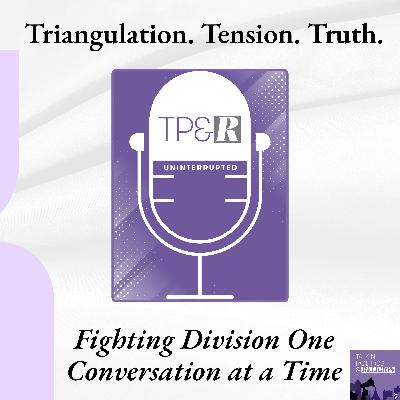



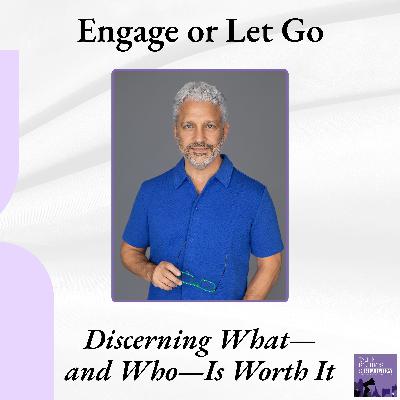
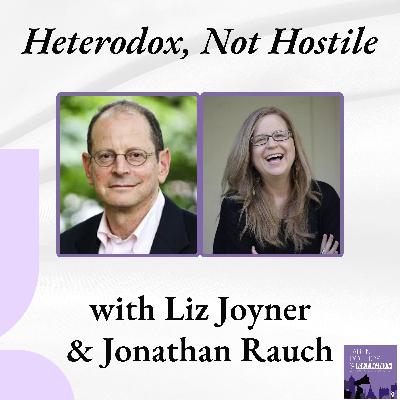
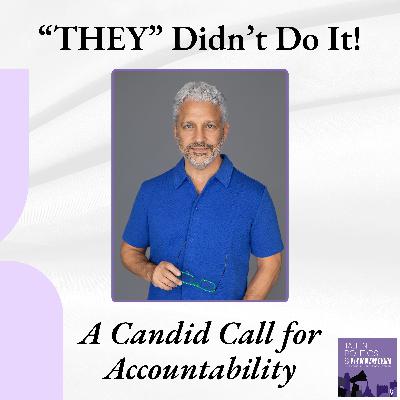
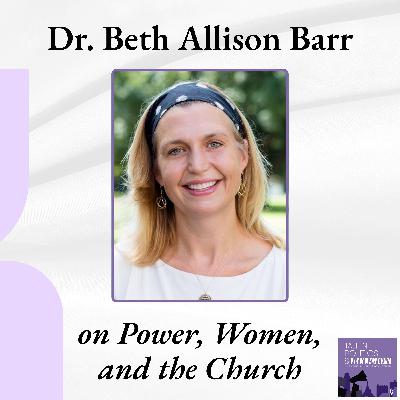
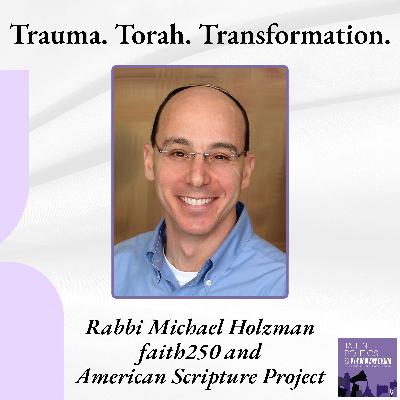
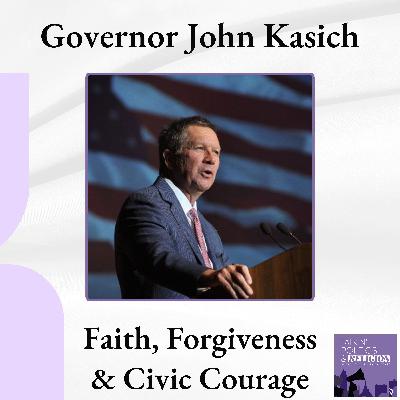
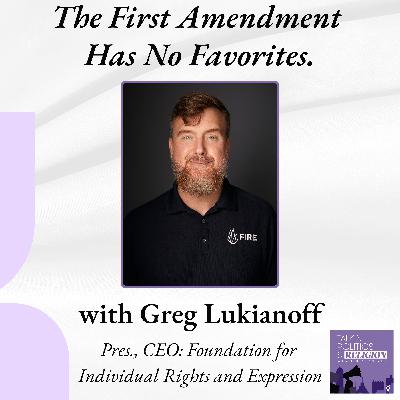
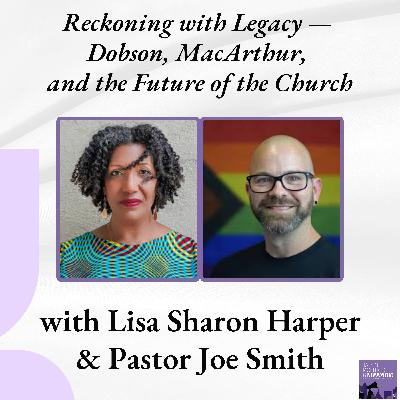
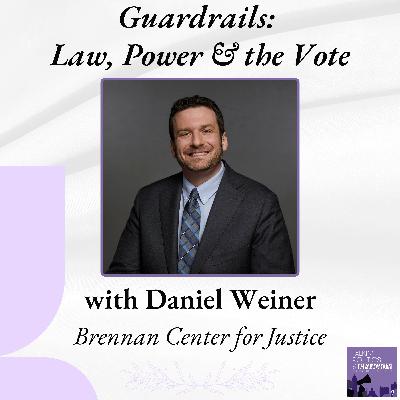
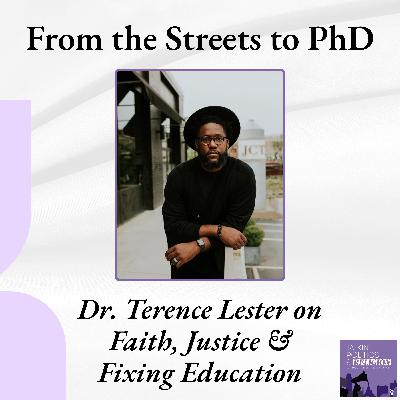
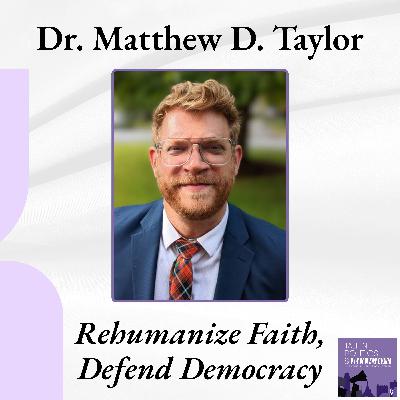



place in front of your own eyes the definitions hereafter- Democratic Society Republic Society which do you prefer
FYI. here are the rules of our platforms: Nonsense will be muted. Incivility will be blocked. Spreading of proven falsehoods and threats will be reported.
very very insightful!